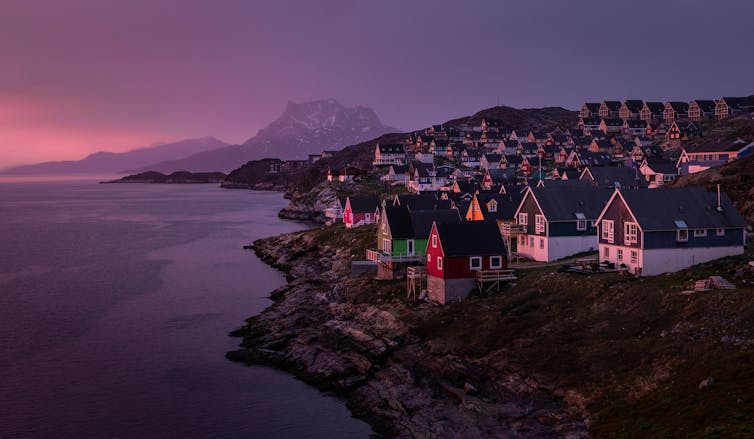
Will Kaufman
University of Central Lancashire
In recent years, Woody Guthrie’s “This Land Is Your Land” has become a rallying cry for immigrants. And in July, after President Donald Trump tweeted that four Democratic congresswomen of color needed to “go back where they came from,” Congresswoman Alexandria Ocasio-Cortez, one of the four targeted, responded with a tweet quoting Guthrie’s lyrics.
But not everyone sees the song as an anthem for inclusion.
In June, the Smithsonian’s online magazine, Folklife, published a piece that lambasted the song for its omissions.
The article, titled “This Land Is Whose Land?,” was written by folk musician Mali Obomsawin, a member of the Native American Abenaki tribe. She wrote of being shaken up “like a soda can” every time she heard the song’s lyrics:
“In the context of America, a nation-state built by settler colonialism, Woody Guthrie’s protest anthem exemplifies the particular blind spot that Americans have in regard to Natives: American patriotism erases us, even if it comes in the form of a leftist protest song. Why? Because this land ‘was’ our land. Through genocide, broken treaties and a legal system created by and for the colonial interest, this land ‘became’ American land.”
Obomsawin’s article immediately generated a flurry of responses from conservative media outlets.
“Commie Folksinger Woody Guthrie Not Woke Enough for Mob,” jeered Breitbart’s John Nolte, delighted with this evidence of internecine strife among what he dubbed the “fascist woketards” of the American left. The Daily Wire’s Emily Zanotti soon joined the fray, penning a piece under the headline “This Land Is NOT Your Land: Woke Culture Now Demanding Woody Guthrie Be Canceled Over Folk Music Faux Pas.”
But Obomsawin and her conservative critics might be surprised to learn that some of Guthrie’s greatest champions have also had difficulties with the song.
As the author of three books on Guthrie, I sometimes wonder how the folksinger would respond to the criticism of “This Land Is Your Land” for its omissions.
While we can’t know for sure, a glance at some of his unpublished writings and recently discovered recordings can offer some clues. Continue reading “The misguided attacks on ‘This Land Is Your Land’”








You must be logged in to post a comment.